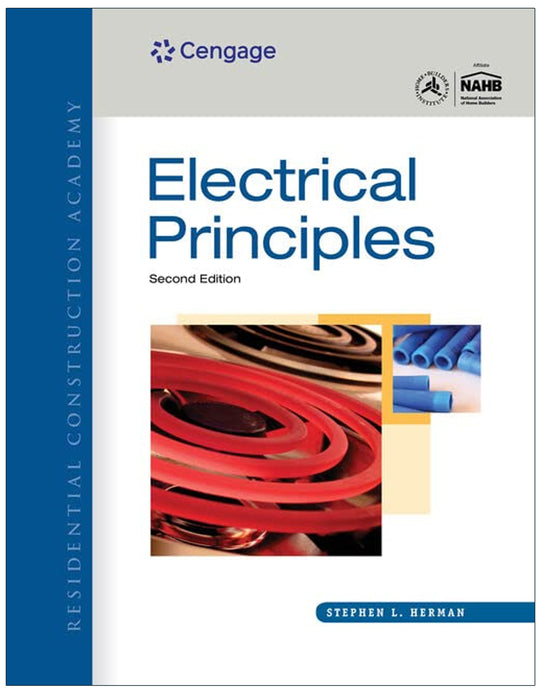
Residential Construction Academy: Electrical Principles 2nd Edition
Through the use of a lively writing style and frequent examples, Residential Construction Academy: Electrical Principles covers the important topics that students need to know to become residential electricians. The author, Stephen L. Herman, logically presents the basic electrical principles from safety to motors and discusses how to go from theory to application. This text helps users learn the functions, work skills and activities included in the Residential Electrician Skill Standards developed by industry leaders for the National Association of Home Builders (NAHB). With its supplemental multimedia and instructor’s resources this text gives an integrated teaching solution directly linking your education/training program to the residential construction industry. 320 pp.
Features:
- Practice problems, chapter overviews and examples are used extensively throughout the text to help students master the material in the book.
- Separate chapter on Safety emphasizes the importance of on the job safety.
- Glossary of Terms opens each chapter to give readers easy access to terminology when they need it.
- End-of-chapter activities and review questions engage readers and encourage their application of critical principles.
- Full-color art throughout the book highlights key concepts and brings them to life for readers.
New to this Edition:
- More Chapter Review questions added to allow for more practice and greater flexibility in assignments.
- New content covers Structure of the Atom, Arc-fault Interrupters, The American Wire Gauge (AWG), and Determining Conductor Sizes Using the NEC.
- Updated to the 2011 National Electrical Code.
- New examples and applications throughout the book.
- Updated and new art throughout the book.
Table of Contents:
- 1. Safety.
- 2. Basic Electrical Theory.
- 3. Electrical Quantities and Ohm’s Law.
- 4. Resistor.
- 5. Series Circuits.
- 6. Parallel Circuits.
- 7. Combination Circuits.
- 8. Measuring Instruments.
- 9. Using Wire Tables and Determining Conductor Sizes.
- 10. Magnetic Induction.
- 11. Alternating Current.
- 12. Inductance in Alternating Current Circuits.
- 13. Resistive-Inductive Series Circuits.
- 14. Resistive-Inductive Parallel Circuits.
- 15. Capacitors.
- 16. Single-Phase Transformers.
- 17. Single-Phase Motors.
